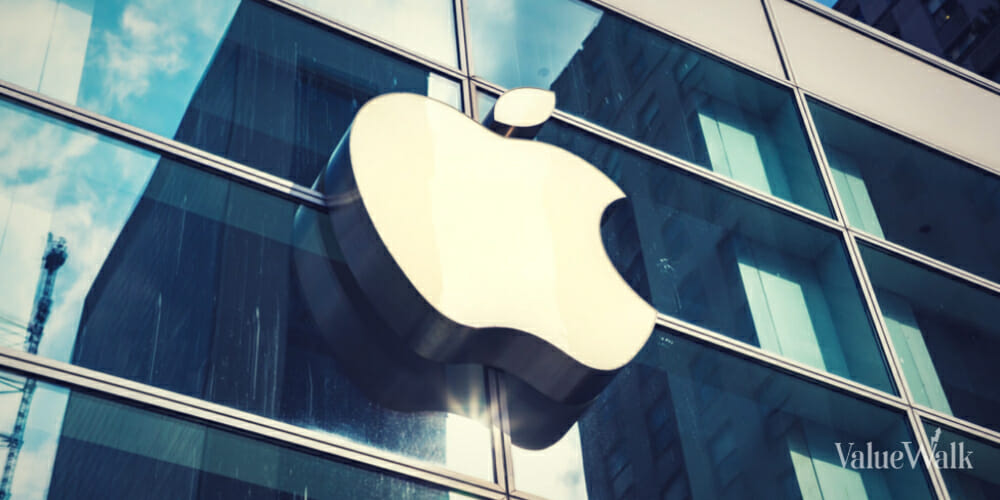What Does DoJ’s Lawsuit Against Apple Mean for Investors?

Shares of Apple (NASDAQ:AAPL) fell 4% on Thursday after the iPhone maker was hit with an antitrust lawsuit by the U.S. Department of Justice (DoJ) for “monopolization or attempted monopolization of smartphone markets.”
The stock was trading slightly higher on Friday after the opening bell, but the lawsuit presents yet another challenge for the struggling tech giant. Apple has lagged most of the Magnificent Seven stocks over the past year and is down about 8% year to date.
Let’s take a look at the lawsuit and what it might mean for Apple investors.
Monopolizing the smartphone market?
Filed in the U.S. District Court in New Jersey, the complaint alleges that Apple is in violation of the Sherman Act. It states that the iPhone maker unlawfully holds a monopoly in the smartphone market by “selectively imposing contractual restrictions on and withholding critical access points from developers.” The DoJ also accuses Apple of undermining other products and services that would make users less reliant on the iPhone, promote interoperability, and lower costs for consumers and developers.
The suit, joined by 16 other state and district attorneys general, is seeking relief to restore competition to these markets.
“Consumers should not have to pay higher prices because companies violate the antitrust laws,” U.S. Attorney General Merrick Garland said in a statement. “We allege that Apple has maintained monopoly power in the smartphone market, not simply by staying ahead of the competition on the merits, but by violating federal antitrust law. If left unchallenged, Apple will only continue to strengthen its smartphone monopoly. The Justice Department will vigorously enforce antitrust laws that protect consumers from higher prices and fewer choices.”
Among the specific complaints, the DoJ alleges that Apple has:
- Blocked the growth of apps with broad functionality that would make it easier for consumers to switch between competing smartphone platforms;
- Blocked the development of cloud-streaming apps and services;
- Made the quality of cross-platform messaging apps worse and less secure so customers have to keep buying iPhones;
- Diminished the functionality of non-Apple smartwatches;
- Limited third-party apps from offering tap-to-pay functionality, inhibiting the creation of cross-platform third-party digital wallets.
Apple issued a statement, saying it will “vigorously defend” itself against these allegations.
“This lawsuit threatens who we are and the principles that set Apple products apart in fiercely competitive markets,” Apple management said, according to 9to5Mac, an Apple news site. “If successful, it would hinder our ability to create the kind of technology people expect from Apple—where hardware, software, and services intersect.”
The company also said the lawsuit would “set a dangerous precedent, empowering government to take a heavy hand in designing people’s technology.”
“We believe this lawsuit is wrong on the facts and the law, and we will vigorously defend against it,” Apple concluded.
Facing headwinds
Apple has already been facing other major headwinds, as it reported four consecutive quarters of year-over-year revenue declines, breaking that streak in Q4 2023 with a revenue increase. While the company did not provide official guidance for 2024, comments made during the Q4 earnings call indicate that revenue is expected to be roughly flat in Q1, and analysts see stagnating revenue growth through 2024.
This lawsuit adds to Apple’s troubles, but just how much is unclear. For starters, the case will probably drag on for years, so don’t expect anything to happen soon. If the DoJ ultimately wins the suit, Apple would probably have to alter some of its practices, and at worst, possibly even face some kind of breakup, although this latter scenario seems highly unlikely.
For example, the DoJ won its antitrust suit against Microsoft (NASDAQ:MSFT) in 2001 for its monopoly on the computer market with its Windows software, but that did not result in a breakup of the company. In fact, Microsoft ultimately emerged from that case a stronger company. Apple has nowhere near the 80% market share that Microsoft had at the time. It does hold about a 60% share of the smartphone market in the U.S., but globally, its market share is onlyabout 25%.
Market shrugs the DoJ case off
The market seemed to shrug the lawsuit off on Friday, as Apple stock rose slightly, climbing about 0.5% in morning trading. Analysts also seemed to mostly take it in stride, as none had changed their price targets as of Friday.
Several leading analysts said it could create short-term headwinds for Apple due to headline risk and the distractions in defending its brand. Longer term, even if the DOJ prevails, analysts don’t see a judgement materially impacting its business model or its market share.
“While the DoJ’s charges are focused on iPhone, we do not see likely remediation as materially impacting Apple financially or undermining the iPhone franchise: worst case, Apple pays a fine and loosens restrictions for competition across the iOS platform, which we believe will have limited impact on iPhone user retention or on Services revenues,” analysts at Bernstein wrote.
Analysts at Wedbush said Apple should find a way to settle, pay a fine, and “ultimately find some compromise with developers on the App Store structure down the road.”
In the meantime, Apple investors can look forward to the release of its much-anticipated iOS 18 operating system in June at the annual Worldwide Developers Conference (WWDC).
Ultimately, this DoJ lawsuit is certainly something to monitor, but there’s no reason to sell Apple stock because of it. This will take years to sort out, and even then, it is impossible to know what kind of impact it will have right now, if any at all. However, history tells us that Apple has been able to navigate challenges over the years. The bigger concern for investors should be its stagnating revenue-growth trajectory and the potential impact of the upcoming iOS 18.

Comments are closed.